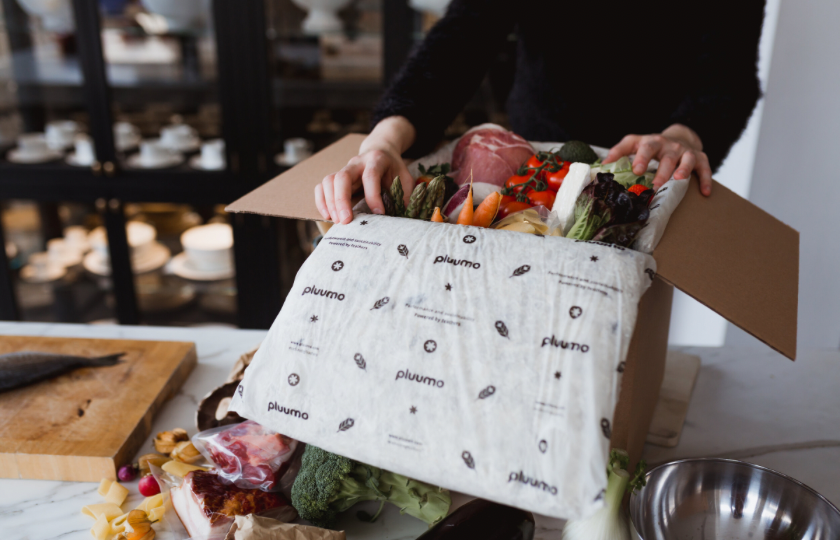We all probably feel the same guilt each time we unbox a package – seeing it filled with “necessary” waste to protect our orders from cracks, breaks, and damages. Some of the most commonly used culprits are made from polystyrene (styrofoam) or bubble wrap.
The problem with plastic packaging, more than just using so much of it, is that it takes thousands of years to degrade – if it ever does. It ends up in oceans, landfills, and even the streets, causing pollution or killing wildlife. Plastic production uses a lot of energy and emits greenhouse gases too.
Seeking to find a solution, a startup from London, Aeropowder, has developed a polystyrene alternative made from feathers (yes you read that right, feathers!).
The product – dubbed Pluumo – is made using surplus feathers from down and poultry. The feathers are washed, cleaned, and converted into a textile encased in a biofilm that functions like styrofoam.
As an insulator, the company claims that Pluumo has better insulation capacity than polystyrene, allowing food to stay chilled longer, and preventing spoilage.
The branched structure and hollow keratin fibres from feathers, said the company, makes it a very good material to trap air and reduce heat transfer. According to the company’s tests, Pluumo is also completely biodegradable.
“If you used all the feathers in Europe, you could create 5 billion parcels per year, just to give you an idea of how many feathers are available,” said Elena Dieckmann, co-founder, Aeropowder.
“As more and more people are relying on deliveries for everyday essentials, using Pluumo for these parcels would represent a huge saving in fossil fuels and waste plastic, as well as reducing the number of feathers that are sent to landfill or incinerated.“



